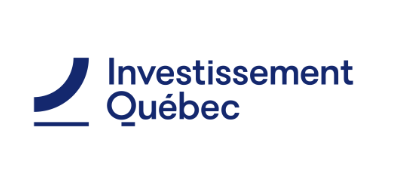 By Gordon Harling
By Gordon Harling
Gordon Harling is the president and CEO of Montreal-based CMC Microsystems and a 40-year veteran of semiconductors in Canada, from fabrication at Mitel to integrated circuit design startups.
In many countries there is a tendency to fund successful researchers heavily and to impoverish those who don’t show an early display of research capability. This results in large groups reporting to a single researcher with a pyramid structure.
The original, high-performance researchers become administrators and no longer have the time to operate research programs.
In addition, many early-career researchers are left to languish without the funds to hire students, travel or purchase basic research tools. We lose many great researchers by not giving them an opportunity to prove themselves.
In a separate problem, academic researchers are prone to competing for resources against their peers and duplicating equipment and facilities rather than cooperating.
This competition does not serve the best interests of the department, the university or Canada. It leads to duplication of resources in many siloed laboratories.
A few universities have pooled their resources and require all researchers to use a shared facility with much better impact, higher uptime on equipment, lower costs, better training for students in a controlled environment, and better process control by experienced laboratory operators. The small loss of flexibility to use exotic materials or processes can be compensated with specialty modules or equipment.
Problems with university IP, technology transfer and commercialization
Universities in Canada do not have a uniform intellectual property (IP) policy and many of them are very one-sided, leading companies to stay away once they have tried to engage.
The Offices of Technology Transfer (OTT), now typically called Innovation offices, tend to overestimate the value of a technology and drive away potential clients. In general, OTTs cost much more than they generate in revenue apart from a few exceptions and these exceptions have created a lottery ticket mentality at many universities.
In venture and angel financing there is a standard set of terms and conditions called Simple Agreement to Future Equity (SAFE). We should propose a similar set of terms and conditions for access to intellectual property that can be a go/no-go criterion for working with universities.
This system must help the companies preserve their cash in the early days of commercialization but also provide reasonable benefit to universities when products are successful.
The costs of commercializing a product are far greater than the initial costs to develop it, yet we offer very little assistance to companies in the commercialization phase.
Export assistance programs only start when a company is already exporting a significant amount of product and travel is somehow seen as a luxury instead of an essential part of creating relationships with foreign customers and partners.
Recommendations
- Provide all early-career researchers with funding for one or two students and supplies for a five-year period, currently around $40,000 annually. Reduce the success rate and cap funding in later years to compensate.
- Promote the pooling of equipment and resources into a smaller number of impactful labs across Canada. If the Canada Foundation for Innovation, for instance, only allowed submissions from a dozen or so shared laboratories across the country and not from individuals or small teams, these labs would be better supported and would have a critical mass of clients and researchers. This implies that there should be a budget for travel for students and researchers to go to a local lab or to a specialized one within Canada.
- The federal government funds academic research and it could impose a national intellectual property requirement in return for funding. Very few universities recover their costs in enforcing patents, and academic patents are a barrier to industrial partnerships. Federal funding, or funding from the Tri-agencies, should be contingent on the industrial partner retaining the intellectual property (or at least a free licence to use it). The benefit to the university is follow-on research projects or possibly new buildings.
- Create a standard set of terms and conditions for companies to engage with universities on joint research programs.
- Create more opportunities for SMEs to be subsidized for international sales and exports. Current programs only kick in once the company has substantial export revenue – get rid of that threshold. Many, many companies have sales outside the country far greater than their sales in Canada; we need to recognize it and support it.
R$
| Organizations: | CMC Microsystems |
| People: | Gordon Harling |
| Topics: | commercializing university research |
Events For Leaders in
Science, Tech, Innovation, and Policy
Discuss and learn from those in the know at our virtual and in-person events.
See Upcoming Events
By using this website, you agree to our use of cookies. We use cookies to provide you with a great experience and to help our website run effectively in accordance with our Privacy Policy and Terms of Service.


.png)


.png)